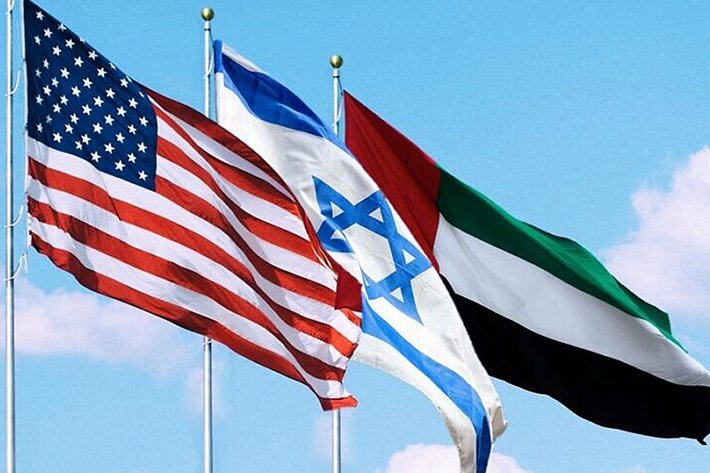On September 2, Saudi Arabia announced it will permit all flights going to and from the United Arab Emirates to fly over its territory—a move that gives Israel access to the kingdom’s airspace for the first time. On September 4, Bahrain issued a similar announcement.

On August 24, Israeli Health Minister Yuli Edelstein spoke on the phone with his Emirati counterpart, Abdul Rahman Mohammed Al Owais, establishing cooperation between the two countries on the coronavirus pandemic and other health-related matters.
The following day, UAE Minister of State for Defense Affairs Mohammed Ahmed al-Bawardi and Israel Defense Minister Benny Gantz spoke on the phone “for the benefit of their countries in particular and the region as a whole,” the UAE state news agency announced. “We share important security interests; collaboration will strengthen regional stability,” was the statement from Gantz’s office.
These are the latest in a series of developments rolling forward following the announcement August 15 of the “Abraham Accord” that established diplomatic relations between the UAE and Israel. The accord is named after the father of the monotheistic religions founded in the Middle East—Christianity, Islam and Judaism.
“Fundamentally, our initiative is not to solve the Arab-Israeli conflict," UAE Minister of State for Foreign Affairs Dr. Anwar Gargash said of the Abraham Accord. “This is left to the Palestinians and Israelis—rather it is to contribute to defusing a time bomb that was threatening the two-state solution.”
“The agreement is not only good for UAE and Israel and not just bilateral,” Gantz told the Jerusalem Post. “It can cause a positive domino effect. Anything to advance peace in the Middle East, or at least normalization, must be welcomed.”
The UAE is the first Gulf and third Arab country to recognize Israel since the creation of a Jewish state in 1948. The first was the Egypt–Israel Peace Treaty in March 1979, and the second was the peace treaty with Jordan in October 1994.
From its beginnings, the Church of Scientology has recognized that freedom of religion is a fundamental human right. In a world where conflicts are often traceable to intolerance of others’ religious beliefs and practices, the Church has, for more than 50 years, made the preservation of religious liberty an overriding concern.
The Church publishes this blog to help create a better understanding of the freedom of religion and belief and provide news on religious freedom and issues affecting this freedom around the world.
For more information, visit the Scientology website or Scientology Network.


